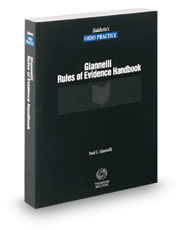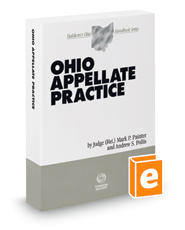Articles Published in 2024
Law Faculty on our Scholarly Commons
Book Chapters Published in 2024
Rosenblatt, User-Generated Transformation: IP, Social Justice, and Fanworks in Handbook on Intellectual Property and Social Justice 339 (Steven D. Jamar and Lateef Mtima, eds., 2024).
-
The Cambridge Handbook of Intellectual Property and Social Justice by
Call Number: Publishers' websiteISBN: 9781108697613Publication Date: 2024Protection for intellectual property has never been absolute; it has always been limited in the public interest. The benefits of intellectual property protection are meant to flow to everyone, not just a limited population of creators and the corporations that represent them. Given this social-utility function, intellectual property regimes must address issues of access, inclusion, and empowerment for marginalized and excluded groups. This handbook defines an approach to considering social justice in intellectual property law and regulation. Top scholars in the field offer surveys of social justice implementation in patents, copyright, trademarks, trade secrets, rights of publicity, and other major IP areas. Chapters define Intellectual Property Social Justice theory and include recommendations for reforming aspects of IP law and administration to further social justice by providing better access, more inclusion, and greater empowerment to marginalized groups.
Chaffee, Securities Regulation and Artificial Intelligence: Regulating Robo-Advisers in Cambridge Handbook of Private Law and Artificial Intelligence 557 (Ernest Lim & Phillip Morgan eds., 2024).
-
The Cambridge Handbook of Private Law and Artificial Intelligence by
Call Number: eBookISBN: 9781108980197Publication Date: 2024AI appears to disrupt key private law doctrines, and threatens to undermine some of the principal rights protected by private law. The social changes prompted by AI may also generate significant new challenges for private law. It is thus likely that AI will lead to new developments in private law. This Cambridge Handbook is the first dedicated treatment of the interface between AI and private law, and the challenges that AI poses for private law. This Handbook brings together a global team of private law experts and computer scientists to deal with this problem, and to examine the interface between private law and AI, which includes issues such as whether existing private law can address the challenges of AI and whether and how private law needs to be reformed to reduce the risks of AI while retaining its benefits.
Jonathan L. Entin, Court Packing and Judicial Independence: An American Perspective in Judicial Independence: Cornerstone of Democracy 382 (2024).
-
Judicial Independence: Cornerstone of Democracy by
Call Number: K3367.J8255 2024ISBN: 9789004535084Publication Date: 2024This book is an academic continuation of the previous five volumes on judicial independence edited by Shimon Shetreet, with others: Jules Deschenes, Christopher Forsyth, Wayne McCormack, Hiram E. Chodosh and Eric Helland, all books were published by Brill Nijhoff: Judicial Independence: The Contemporary Debate (1985), The Culture of Judicial Independence: Conceptual Foundations and Practical Challenges (2012), The Culture of Judicial Independence: Rule of Law and World Peace (2014), The Culture of Judicial Independence in a Globalised World (2016), Challenged Justice: In Pursuit of Judicial Independence (2021). This volume offers studies by distinguished scholars and judges from different jurisdictions on numerous dimensions regarding the essential role of judicial independence in democracy. It includes analyses of basic constitutional principles and contemporary issues of judicial independence and judicial process in many jurisdictions and analyses of international standards of judicial independence and judicial ethics.
Lost in Translation: A Global View of Insider Trading Regulation, in Research Handbook on Insider Trading (Stephen M. Bainbridge ed., 2d ed., 2025).
-
Research Handbook on Insider Trading by
ISBN: 9781035301201Publication Date: 2025This thoroughly revised second edition skilfully provides an updated and extensive overview of cutting-edge research on insider trading, the most common violation of securities law. It presents legal, economic, and empirical studies from Australasia, the Middle East, Europe and North America. Stephen M. Bainbridge brings together an array of expert contributors to provide global analysis on insider trading laws and economics. The book expands upon the previous edition with new and rigorously researched coverage exploring the USA's comprehensive insider trading ban and the related legal proceedings, as well as empirical research advancements in the field. New chapters examine important developments in other major economies, including China, Japan, and the EU, and feature new insight into insider trading laws in Israel and Arab countries. This new edition of Research Handbook on Insider Tradingis an essential resource for students, educators, and professionals in company and insolvency law, economics, and finance, interested in the intricacies of insider trading. Regulators and judges covering economic crime and corruption, and corporate law and governance will also find this book an invaluable reference.
NFTs and State Laws Governing Securities Regulation, Virtual Currency, and Money Transmission, in Cambridge Handbook on Law and Policy for NFTs (Nizan Geslevich Packin ed., 2024).
-
The Cambridge Handbook of Law and Policy for NFTs by
ISBN: 9781009279178Publication Date: 2024As blockchain in general and NFTs in particular reshape operation logistics, data creation, and data management, these technologies bring forth many legal and ethical dilemmas. This handbook offers a comprehensive exploration of the impact of these technologies in different industries and sectors including finance, anti-money laundering, taxation, campaign-finance, and more. The book specifically provides insights and potential solutions for cutting-edge issues related to intellectual property rights, data privacy and strategy, information management, and ethical blockchain use, while offering insights, case studies, and recommendations to help anyone seeking to shape effective, balanced regulation to foster innovation while safeguarding the interests of all stakeholders. This handbook offers readers an invaluable roadmap for navigating the dynamic and evolving landscape of these new technologies.
“Voter Registration” in Oxford Handbook of American Election Law (Eugene Mazo, ed., 2024).
-
The Oxford Handbook of American Election Law by
ISBN: 9780197547922Publication Date: 2024The Oxford Handbook of American Election Law offers a sophisticated overview of one of the most contested and consequential areas of American law. The book introduces the reader to election law's core themes, provides summaries of its leading cases, guides the reader through key scholarly debates, and suggests areas for future research. The first book of its kind in the field, the Handbook brings together forty-seven leading scholars of election law to explore the doctrines and debates that define this field. The book begins by explaining how election law relates to its closest academic cousins, including constitutional law and political science. It then explores the major topics in election law, including the right to the vote, the rules of running for office, the role of political parties, the dynamics of redistricting and gerrymandering, the significance of the Voting Rights Act, the intricacies of campaign finance, and the recurring controversies surrounding election administration in the United States. Each chapter of the Handbook offers the reader a careful, detailed, and thorough analysis of thorny terrain, crystallizing controversial issues and situating them within the field's contemporary debates. The book aims to reach newcomers to the field as well as more sophisticated readers who hope to gain a firmer understanding of election law's many nuances, intricacies, and complexities. Unparalleled in the breadth and depth of its coverage, the Handbook is designed to serve as a resource for students, scholars, policymakers, and practitioners.
“Smart Regulation To Enhance Wealth Creation and Sustainable Capitalism,” in Sustainable Capitalism: Essential Work for the Anthropocene? 199 (Inara Scott, ed.) (2024) (with Inara Scott).
-
Sustainable Capitalism by
ISBN: 9781647691745Publication Date: 2024Capitalism has been linked to climate change, racism and slavery, wealth inequality, and the decline of democracy. At the same time, capitalism may have been instrumental in lifting hundreds of millions of people out of poverty, facilitating vast technological innovations, and improving standards of living across the globe. As climate change accelerates and the world is threatened with existential crises, we must ask: Is capitalism incompatible with sustainability? While this question is as complex and urgent as it is resistant to simple answers, the contributors to this volume make the case that a more sustainable capitalism is within our reach. Sustainable Capitalism takes on the challenge of sustainability from a uniquely interdisciplinary and diverse perspective, offering both theory and tools for action. Topics range from an analysis of the foundations and definition of capitalism to the specific regulatory mechanisms that may be necessary to rein in its current, unsustainable trajectory. Readers will find nuanced and important analyses of options and potential outcomes that are not available in any other work. This book is essential reading for anyone concerned about the path we are on and how we might improve the lives of people around the globe. https://www.sustainablecapitalismbook.com/
“The Impact of Tax Laws and International Treaties on Sovereign Wealth Funds,” in The Palgrave Handbook on Sovereign Wealth Funds (H. Kent Baker, Jeffery H. Harris & Gyiyath F. Nkshbendi eds., 2024 ed.).
“Sovereign Wealth Funds and Shareholder Activism: Corporate Governance and Public Policy Deliberations,” in The Palgrave Handbook on Sovereign Wealth Funds (H. Kent Baker, Jeffery H. Harris & Gyiyath F. Nkshbendi eds., 2024 ed.).
-
The Palgrave Handbook of Sovereign Wealth Funds by
ISBN: 9783031508202Publication Date: 2024The Palgrave Handbook of Sovereign Wealth Funds provides a comprehensive, detailed analysis of these funds from a multidimensional perspective consisting of 33 chapters divided into seven sections. Section I provides background material about SWFs, providing a foundation for the remainder of the handbook. Section II examines various controversies, governance, and accountability topics involving SWFs. Section III discusses the political, legal, and tax aspects of SWFs. Section IV reviews numerous topics involving SWF management. Section V deals with SWFs' policies, preferences, and performance. Section VI provides descriptive analyses of SWFs based on country or region. It also offers a comparison of SWF similarities and differences across countries. Section VII concludes by examining special issues and the future of SWFs. This handbook spans the gamut from theoretical to practical while offering the right balance of detailed and user-friendly coverage. Discussion of relevant research permeates the handbook. Although other books are available on SWFs, few are as comprehensive or provide a multidimensional perspective from academics and practitioners. This handbook fills a gap by showing how SWFs are a growing and dynamic force in international finance.
User-Generated Transformation: IP, Social Justice, and Fanworks, in Handbook on Intellectual Property and Social Justice 339-361 (Lateef Mtima & Steven Jamar, eds., Cambridge University Press, 2024).
-
The Cambridge Handbook of Intellectual Property and Social Justice by
ISBN: 9781108482738Publication Date: 2024Protection for intellectual property has never been absolute; it has always been limited in the public interest. The benefits of intellectual property protection are meant to flow to everyone, not just a limited population of creators and the corporations that represent them. Given this social-utility function, intellectual property regimes must address issues of access, inclusion, and empowerment for marginalized and excluded groups. This handbook defines an approach to considering social justice in intellectual property law and regulation. Top scholars in the field offer surveys of social justice implementation in patents, copyright, trademarks, trade secrets, rights of publicity, and other major IP areas. Chapters define Intellectual Property Social Justice theory and include recommendations for reforming aspects of IP law and administration to further social justice by providing better access, more inclusion, and greater empowerment to marginalized groups.
Books Published in 2024
-
 Giannelli Rules of Evidence Handbook (2024 ed.)
by
Call Number: KFO540.G53Publication Date: 2024From publisher: "This softcover volume, Rules of Evidence Handbook, is a quick reference to the Ohio Rules of Evidence. Authors' expert comments shed light on each rule of Ohio evidence, emphasizing changes in the rules, as well as their application and interpretation by the Ohio courts since 1980."
Giannelli Rules of Evidence Handbook (2024 ed.)
by
Call Number: KFO540.G53Publication Date: 2024From publisher: "This softcover volume, Rules of Evidence Handbook, is a quick reference to the Ohio Rules of Evidence. Authors' expert comments shed light on each rule of Ohio evidence, emphasizing changes in the rules, as well as their application and interpretation by the Ohio courts since 1980." -
 Katz & Giannelli Ohio Criminal Laws and Rules (2024 ed.)
by
Call Number: KFO561.A29O32Publication Date: 2024From publisher: "Providing a comprehensive criminal law reference for use in court, office, classroom, or police cruiser, Ohio Criminal Laws and Rules is written for everyone involved with Ohio’s criminal justice system. Contents include the full text of Ohio Revised Code Title 29 and selected provisions of the Ohio Constitution..."
Katz & Giannelli Ohio Criminal Laws and Rules (2024 ed.)
by
Call Number: KFO561.A29O32Publication Date: 2024From publisher: "Providing a comprehensive criminal law reference for use in court, office, classroom, or police cruiser, Ohio Criminal Laws and Rules is written for everyone involved with Ohio’s criminal justice system. Contents include the full text of Ohio Revised Code Title 29 and selected provisions of the Ohio Constitution..." -
Legal Protection of the Environment (5th ed.) by
ISBN: 9798892093552Publication Date: 2024"The new edition features a new introduction to environmental law, and the ways that environmental regulation is implemented. It also contains updated sections on the major federal environmental laws, including the NEPA amendments of 2023. It continues to be an excellent tool for analyzing environmental issues and teaching how to be an environmental lawyer." -
 Ohio Appellate Practice (2024-2025 ed.)
by
Call Number: KFO555.A4ISBN: 9781539228240Publication Date: 2024From publisher: "Ohio Appellate Practice provides fast answers to questions about appellate practice in Ohio, as well as in-depth analysis of all of the most recent caselaw, rules, and statutes governing it. The text covers all aspects of practice..."
Ohio Appellate Practice (2024-2025 ed.)
by
Call Number: KFO555.A4ISBN: 9781539228240Publication Date: 2024From publisher: "Ohio Appellate Practice provides fast answers to questions about appellate practice in Ohio, as well as in-depth analysis of all of the most recent caselaw, rules, and statutes governing it. The text covers all aspects of practice..." -
 Ohio Arrest, Search and Seizure (2024 ed.)
by
Call Number: KFO576.K37ISBN: 9781539228394Publication Date: 2024From the publisher: "In Ohio Arrest, Search and Seizure, a nationally recognized Fourth Amendment authority examines the balance of an individual's rights with legitimate law enforcement procedures, as reflected in decisions of the U.S. Supreme Court, Ohio criminal rules and statutes, and state caselaw. This basic reference on Ohio criminal procedure interprets new trends and developments while addressing facts and holdings in more than 800 cases.."
Ohio Arrest, Search and Seizure (2024 ed.)
by
Call Number: KFO576.K37ISBN: 9781539228394Publication Date: 2024From the publisher: "In Ohio Arrest, Search and Seizure, a nationally recognized Fourth Amendment authority examines the balance of an individual's rights with legitimate law enforcement procedures, as reflected in decisions of the U.S. Supreme Court, Ohio criminal rules and statutes, and state caselaw. This basic reference on Ohio criminal procedure interprets new trends and developments while addressing facts and holdings in more than 800 cases.." -
Securities Regulation in Cyberspace by
Call Number: KF1439.F7433 1997ISBN: 9781886100039Publication Date: 1997 (2024 supplement) -
Legal Protection of the Environment by
ISBN: 9798887864464Publication Date: 2024The new edition features a new introduction to environmental law, and the ways that environmental regulation is implemented. It also contains updated sections on the major federal environmental laws, including the NEPA amendments of 2023. It continues to be an excellent tool for analyzing environmental issues and teaching how to be an environmental lawyer. -
Baldwin's Ohio Practice - Civil Practice (2023-2024 ed) by
Call Number: Law Reference KFO530.A1C58Publication Date: 2024From the publisher: "Gain a deeper understanding and working knowledge of the Ohio Rules of Civil Procedure with Baldwin's Civil Practice. The rule-by-rule discussion combines expert analysis with practical guidance. Additionally, one volume contains more than 450 proven forms covering all facets of civil litigation." -
Professional Responsibility in the Life of the Lawyer by
ISBN: 9781636598345Publication Date: 2024The third edition of Professional Responsibility in the Life of the Lawyer introduces students to the legal and ethical issues they will encounter along their career paths. The law governing lawyers is presented at every career stage, from seeking admission to the bar, to acquiring clients and representing them in various practice areas, navigating well-being issues, and reflecting on legacy at the end of the lawyer's career. In every chapter, students are placed in the role of lawyer and asked to solve realistic problems by applying professional conduct rules and other sources of law. In every chapter of the book, there are opportunities to discuss and reflect upon professional identity.